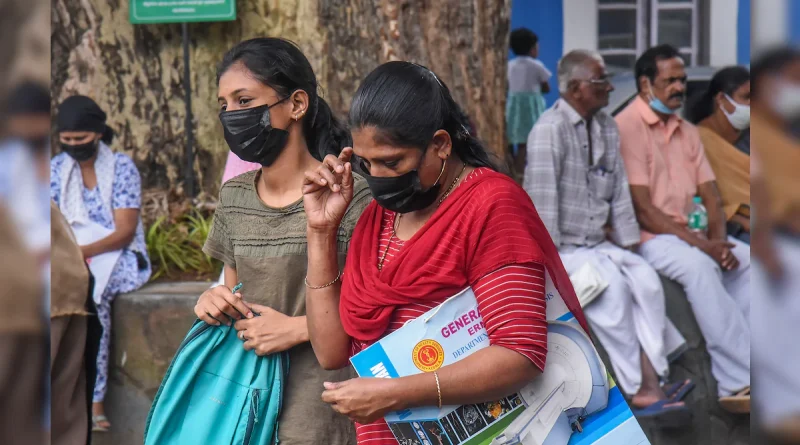What’s Behind Latest Covid Spike? Experts On Whether It’s Time To Mask Up
New Delhi:
A rise in daily Covid case counts and several states issuing mask advisories have brought back grim memories of the pandemic that locked us indoors and wrapped us in fear for two years. A total of 358 Covid cases have been reported across the country in the past 24 hours, 300 of them in Kerala. Six people died due to Covid-related complications during this period. The country has 2,669 active cases of Covid, according to the Union Health Ministry.
The daily Covid count of 614 cases reported yesterday, the highest since May, set off alarm bells. This spike in infections is driven by a Covid variant named JN.1.
The World Health Organization has classified JN.1 as a ‘variant of interest’ but said that evidence currently available suggests that it does not pose a major risk. “Despite this, with the onset of winter in the Northern Hemisphere, JN.1 could increase the burden of respiratory infections in many countries,” WHO said in a post on X.
Asked about 30% of pneumonia cases in Kochi hospitals turning out to be Covid positive and the likelihood of this being replicated in other parts of India, she said, “We’ve been through this many times before, as you know, over the last four years. This is what we expected and this is what the WHO had talked about.”
“We’re seeing a new variant, the JN.1, which is a sub-variant of Omicron. So hopefully it behaves like Omicron, which was relatively mild. But what happens is that every new variant gets some properties of being more transmissible. It is able to evade or avoid the antibody responses that we already have in our system. And therefore it is able to create these waves of infection where it infects people who’ve already been infected before,” she explained.
For people comparing newer variants of Covid with the common cold, Dr Swaminathan had a warning: “It’s very different from the common cold, not just because of people getting severely ill with acute Covid pneumonia, but also because of the long-term effects of Covid.
“And I think we have enough data now from around the world to know that people who have suffered from Covid and, particularly those who have repeat infections, are more likely to get, for example, heart attacks, strokes, diabetes, dementia, depression, mental health problems, prolonged fatigue and muscle pain… inability to go back to their usual state of functioning,” she said.
Dr Swaminathan added, “So I would say let’s not take it lightly. If you can avoid the infection, much better to avoid it than to get it and risk the after-effects of long Covid.”
Dr Rajeev Jayadevan, Co-Chairman of the National Indian Medical Association Covid Task Force, told NDTV that vaccines may have helped keep Covid at bay since the last wave, but a concern arises when a variant is markedly different.
“For example, JN.1 is not like a one-step ahead variant. This is a multi-step ahead variant. We call it the saltation event in genetics, which basically means a pile of mutations suddenly occurring at one go,” he said.
On masking up, he advised, “I would say if you are trapped in a situation where it’s ventilated, closed, crowded, you feel the air is still and there are people around you, it’s safer to wear a mask. If you are travelling in a vehicle with multiple people who you don’t know, wear a mask or at least roll your windows down.”

